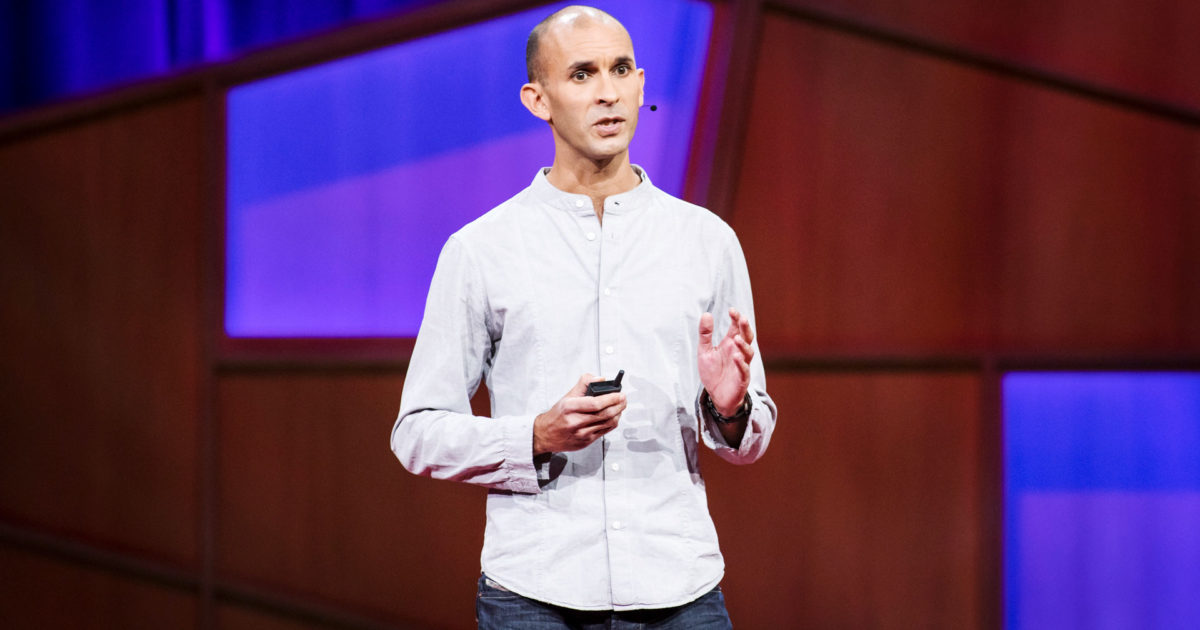Consciousness in machines may have more to do with the ability to breath than intelligence.
copyright by www.wired.com
The talk didn’t even happen during a particularly well-attended session. Cognitive neuroscientist Anil Seth spoke right at the end of the “Mind and Meaning” series of talks Wednesday morning. And what he said spoke to me: Despite recent claims to the contrary, consciousness is uniquely intertwined with being human. All this handwringing about AI becoming conscious? About uploading your brain to a robot? You probably shouldn’t worry. As a human, I found this very comforting. “My research shows that consciousness has less to do with pure intelligence and more to do with our nature as living and breathing organisms,” Seth said. After all, you don’t have to be a super-intelligent AI to suffer. You have to be alive.
Two different kinds of Consciousness
There are two sides to consciousness, Seth says: the outside experience and the inner experience. Starting with the outside—the sights, sounds and smells surrounding us—Seth says our experience depends on our brain’s ability to function as a prediction engine. He played a garbled audio clip for the audience, something indiscernible—then a clearer version of the clip. “I think Brexit is a really terrible idea,” the recording said. He then played the same earlier, garbled audio. This time, it was completely intelligible.
Are we all hallucinating all the time?
“The sensory information coming into your brain hasn’t changed at all,” Seth said. But something had changed after we heard the clearer audio. Our brains had information to predict what the garbled audio would sound like. Judging from the faces of the people around me, I knew I wasn’t the only one feeling amazed. (Gobsmacking audience participation? Check.) My heart was engaged. Then came my head. “If hallucination is a kind of uncontrolled perception, then perception is a kind of hallucination,” Seth said. But, he said, it’s a controlled hallucination, one in which sensory information from the world is reining in the brain’s predictions. “In fact, we’re hallucinating all the time, including right now. It’s just that when we agree about our hallucinations. We call that reality.” Dang.
read more – copyright by www.wired.com
How does consciousness happen? Anil Seth speaks at TED2017


Consciousness in machines may have more to do with the ability to breath than intelligence.
copyright by www.wired.com
The talk didn’t even happen during a particularly well-attended session. Cognitive neuroscientist Anil Seth spoke right at the end of the “Mind and Meaning” series of talks Wednesday morning. And what he said spoke to me: Despite recent claims to the contrary, consciousness is uniquely intertwined with being human. All this handwringing about AI becoming conscious? About uploading your brain to a robot? You probably shouldn’t worry. As a human, I found this very comforting. “My research shows that consciousness has less to do with pure intelligence and more to do with our nature as living and breathing organisms,” Seth said. After all, you don’t have to be a super-intelligent AI to suffer. You have to be alive.
Two different kinds of Consciousness
There are two sides to consciousness, Seth says: the outside experience and the inner experience. Starting with the outside—the sights, sounds and smells surrounding us—Seth says our experience depends on our brain’s ability to function as a prediction engine. He played a garbled audio clip for the audience, something indiscernible—then a clearer version of the clip. “I think Brexit is a really terrible idea,” the recording said. He then played the same earlier, garbled audio. This time, it was completely intelligible.
Are we all hallucinating all the time?
“The sensory information coming into your brain hasn’t changed at all,” Seth said. But something had changed after we heard the clearer audio. Our brains had information to predict what the garbled audio would sound like. Judging from the faces of the people around me, I knew I wasn’t the only one feeling amazed. (Gobsmacking audience participation? Check.) My heart was engaged. Then came my head. “If hallucination is a kind of uncontrolled perception, then perception is a kind of hallucination,” Seth said. But, he said, it’s a controlled hallucination, one in which sensory information from the world is reining in the brain’s predictions. “In fact, we’re hallucinating all the time, including right now. It’s just that when we agree about our hallucinations. We call that reality.” Dang.
read more – copyright by www.wired.com
How does consciousness happen? Anil Seth speaks at TED2017
Share this: